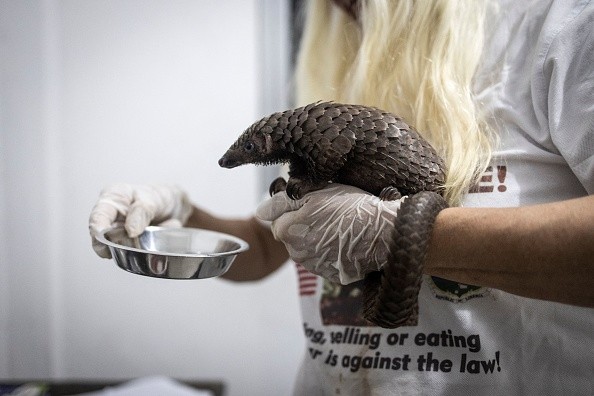Recent research published in the journal Frontiers in Public Health by scientists from the Wildlife Conservation Society (WCS) reveals the presence of SARS-CoV-2 related coronaviruses in pangolins captured from the illicit wildlife trade in Vietnam.
Only pangolins confiscated in China have previously tested positive for SARS-CoV-2 related coronaviruses.
According to the study's authors, the findings provide evidence that the transnational existence of the trade-in wildlife can facilitate coronavirus and other viral transmitted and amplification along of the trade chain, demonstrating that pandemic and epidemic prevention must also focus on pathogen spillover from wildlife.
Coronavirus have found in Pangolins

According to a study, pangolins captured from the illicit wildlife trade in Vietnam carry SARS-CoV-2 related coronaviruses, suggesting that the risk from trading in the species extends beyond markets in China.
Only pangolins collected in China have tested positive for SARS-CoV-2 related coronaviruses, according to a team led by experts from the Wildlife Conservation Society (WCS), as per Business Standard.
According to the study's lead author, Nguyen Thi Thanh Nga of WCS's Viet Nam Program, SARS-like coronaviruses (SARS-CoV-2 and SARS-CoV-1) can cause severe illness in humans.
This investigation demonstrates the presence of SARS-CoV coronaviruses in trafficking pangolins in Vietnam. The abolition of the trade-in pangolins and other wild animals and birds would close this high-risk channel for viral spillover and disease development, as per ScienceDaily.
Since 2017, all eight pangolin species have been placed on CITES Appendix I, which prohibits all international commerce for commercial purposes.
All four Asian pangolin species, including the Sunda and Chinese pangolins (Manis pentadactyla), are classified as Endangered or Critically Endangered across their range.
The researchers examined specimens from 246 pangolins confiscated during wildlife confiscation events in Vietnam from 2016 to 2018.
They discovered that specimens obtained from seven different pangolins in 2018 tested positive for a coronavirus linked to SARS-CoV-2.
In addition to assessing pangolins for SARS-CoV-2 related coronaviruses, the researchers combed through media reports on pangolin trafficking incidents involving Vietnam between 2016 and 2020.
Multiple pangolin confiscation incidents seen in Vietnam included additional live species such as non-human primates, reptiles, and birds.
Read more : Experts Alarmed as Omicron Variant in Deers May Cause Spillover of New Strains to Humans
Banishment of wildlife trade across the world
These findings support current recommendations on the regulation of live wildlife trade and markets, such as the WHO, UNEP, and the International Organization for Animal Health (OIEApril )'s 2021 Interim Guidance.
This urged governments to halt the trade in live caught endangered mammals species for meat or procreation as an emergency measure, and to close sections of farmers markets selling live caught wild animals of mammalian species, unless measurably effective restrictions and adequate risk evaluations are in place.
China, among other nations, has launched a multi-sectoral and continuous crackdown on illicit wildlife trading, as well as legislative reforms aimed at totally eliminating the farming/sourcing, trade, and eating of terrestrial animals as food.
As an immediate response to the discovery of SARS-CoV-2 in China, as stated in the July 2020 Vietnamese Government Prime Minister's Directive No. 29 on "urgent measures to maintain wildlife," Viet Nam explicitly banned the import of wildlife in January 2020 and urged increased enforcement of existing laws against illegal wildlife trading.
© 2025 NatureWorldNews.com All rights reserved. Do not reproduce without permission.





